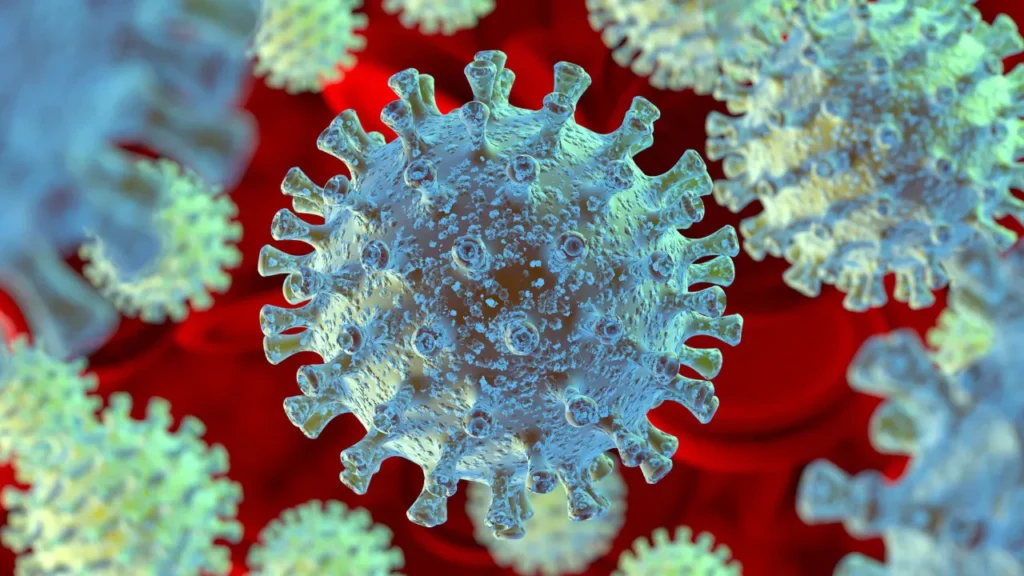Agaricus mushrooms belong to the genus Agaricus and the family Agaricaceae. They are a varied group of fungi that have piqued the interest of researchers due to their possible health advantages. For example, Agaricus bisporus (white button mushroom) and Agaricus blazei (also known as Agaricus subrufescens or the Brazilian mushroom) are two of the most well-known Agaricus species. For generations, these mushrooms have been used in traditional medicine, and scientific research has recently begun to unravel the substances responsible for their diverse health effects. We will look at the chemistry of Agaricus mushrooms, their health advantages, ideal dosage, adverse effects, probable substance interactions, and responsible use in this post.
You May Also Like:
Battle of the Brain Boosters: Brain MD Omega 3 Power vs. Kori Krill Oil Mind & Body
California Poppy: Benefits, Dosage, Side Effects, Drug Interactions, And Other Important Information
Agaricus Mushrooms: Benefits, Dosage, Side Effects, Drug Interactions, And Other Important Information is an original (NootropicsPlanet) article.
Nature of Agaricus Mushrooms
Over 300 species of fungi make up the genus Agaricus, which is distinguished by its gilled fruiting bodies and spore-bearing structures known as basidia. Since they are saprotrophic by nature, they get their nourishment from the rotting of organic debris. Grasslands, woodlands, and urban areas are all popular locations for these mushrooms, which frequently flourish in rich, organic soils. The white button mushroom and the Brazilian mushroom, both members of the genus Agaricus, are among its most well-known species.
Agaricus mushrooms have a cap-and-stem morphology, with the species-specific cap showing a range of hues and textures. Basidia, which produce the spores, are found in the gills beneath the cap and are often dark brown or purple-brown. The cylindrical stem, or stipe, may feature an annulus or ring that served as a holdover from the partial veil that originally shielded the gills during development.
Agaricus mushrooms play a variety of ecological tasks, aiding in the breakdown of organic matter to aid in the formation of soil and the cycling of nutrients. With the help of bacteria, they create mutualistic partnerships with which they can proliferate and produce more bioactive substances. For instance, the roots of some plants are known to form mycorrhizal connections with some Agaricus species, which encourage nutrient exchange and improve plant growth.
Health Benefits of Agaricus Mushrooms
- Immunomodulatory Effects: It has been established that Agaricus mushrooms have immunomodulatory qualities, principally because of their glucan concentration. Immune cells including macrophages, neutrophils, and natural killer cells interact with glucans to increase their activity and stimulate the generation of cytokines. This contact might strengthen the immune system and safeguard the body against illnesses and infections.
- Anticancer Propensities: Agaricus mushrooms may possess anticancer propensities, according to several studies. Glucans found in the mushrooms have been demonstrated to activate the immune system and prevent tumor growth and metastasis. In addition, several Agaricus species, like A. blazei, contain particular substances such as ergosterol peroxide and blazeispirol A, which have been shown to have cytotoxic effects on cancer cells.
- Agaricus mushrooms contain phenolic chemicals that have strong anti-inflammatory and antioxidant properties. By scavenging free radicals, these substances lessen oxidative stress and shield cells from harm. The regulation of the nuclear factor-kappa B (NF-B) signaling pathway and the inhibition of pro-inflammatory cytokines are responsible for the reduction of inflammation.
- Antimicrobial and Antiviral capabilities: Because of their high protein and peptide content, Agaricus mushrooms are shown to possess antimicrobial and antiviral capabilities. It has been demonstrated that a variety of bacteria, fungi, and viruses, including Staphylococcus aureus, Escherichia coli, and Candida albicans, are inhibited by the fungal lectins and ribosome-inactivating proteins from those mushrooms. Additionally, several Agaricus species have shown antiviral action against viruses such as herpes simplex virus (HSV) and human immunodeficiency virus (HIV).
- Blood Glucose Regulation: Agaricus mushrooms may help to regulate blood sugar levels. The polysaccharides in these mushrooms have been demonstrated in certain studies to lower blood glucose levels and enhance insulin sensitivity in animal models, indicating possible applications for treating diabetes.

Chemistry of Agaricus Mushrooms
A wide range of bioactive substances found in Agaricus mushrooms contributes to their ability to promote health. Polysaccharides, phenolic chemicals, and proteins are the main elements of interest. As mentioned, the polysaccharides in Agaricus mushrooms that have been investigated the most are their glucans. These glucans are well known to have immunomodulatory and anti-tumor properties. Glucans are made up of linear or branching structures of D-glucose monomers which are then joined by glycosidic linkages to produce structures with a range of molecular weights.
Other vital components of Agaricus mushrooms include phenolic substances like flavonoids and phenolic acids. These substances have anti-inflammatory, antibacterial, and antioxidant properties. Quercetin and rutin are the most frequent flavonoids in Agaricus mushrooms.
The health advantages of Agaricus mushrooms are also attributed to their proteins and peptides, some of which have antibacterial, antiviral, and anticancer characteristics. Fungal lectins are also found in those mushrooms and they are a group of proteins that bind to carbohydrates which are known to modify immune responses and may one day be used to treat cancer.
Physiological Mechanisms of Action of Agaricus Mushrooms
Agaricus mushrooms have a number of physiological actions which are thought to contribute to their health advantages.
- Immunomodulation: By attaching to particular receptors (such as dectin-1, TLR-2, and TLR-4) on immune cells, it can stimulate the production of pro-inflammatory and anti-inflammatory cytokines, chemokines, and other immune mediators by activating signaling pathways, including as the MAPK and NF-B pathways. Immune cells that can bind to those receptors are macrophages, neutrophils, and natural killer cells. The improved immune response can aid in the fight against infections and slow the growth of tumors.
- Anticancer Activity: Cytokines and other mediators that aid in the killing of cancer cells are released when glucans activate immune cells. This is the main property of the anticancer effects of Agaricus mushrooms. Ergosterol peroxide and blazeispirol A, two chemicals found in Agaricus mushrooms, can also cause cancer cells to undergo apoptosis (programmed cell death) by activating caspase enzymes and altering Bcl-2 family proteins.
- Antioxidant and Anti-Inflammatory Activity: By scavenging free radicals and lowering oxidative stress, the phenolic compounds in Agaricus mushrooms have antioxidant properties. Additionally, they prevent the NF-B signaling pathway from being activated. This reduces the generation of inflammatory cytokines, thus suppressing inflammation.
- Antibacterial and Antiviral Activity: The lectins and ribosome-inactivating proteins found in Agaricus mushrooms have antibacterial and antiviral activities. By interfering with the creation of viral proteins, these compounds can damage the cell walls or membranes of bacteria and fungi to prevent the multiplication of viruses.
- Blood Glucose Regulation: It has been demonstrated that the polysaccharides in Agaricus mushrooms increase blood sugar control by boosting insulin sensitivity and boosting glucose absorption in peripheral tissues. The stimulation of the AMPK signaling system, which is essential for the metabolism of lipids and glucose, may act as a mediator for this action.

Optimal Dosage and Administration of Agaricus Mushrooms
The ideal Agaricus mushroom dosage varies depending on the species, manner of preparation, and desired health benefits. A daily intake of 1-3 grams of dry Agaricus mushroom or an equivalent extract is typically advised for immune support and general health. Higher dosages, ranging from 3 to 6 grams per day or more, may be required for anticancer or other therapeutic applications, depending on the person’s needs and tolerance.
Side Effects and Safety of Agaricus Mushrooms
In moderation, Agaricus mushrooms are generally regarded as safe to eat. However, some people may develop negative side effects including diarrhea, allergic reactions, and gastrointestinal pain. Rarely, especially in cases of high use or pre-existing liver problems, have Agaricus mushrooms been linked to liver damage. It is crucial to begin with a modest dose and gradually raise it while keeping an eye out for any negative side effects. Before taking Agaricus mushrooms as a dietary supplement, expectant or nursing mothers, as well as people with weakened immune systems, should talk to a doctor.

Potential Substance Interactions with Agaricus Mushrooms
- Anticoagulants: When combined with anticoagulants like warfarin, heparin, or antiplatelet medications like aspirin and clopidogrel, Agaricus mushrooms may increase the risk of bleeding. Before consuming Agaricus mushrooms in conjunction with these drugs, it is recommended that you speak with a healthcare provider.
- Immunosuppressants: Agaricus mushrooms may counteract the effects of immunosuppressive medications like corticosteroids or cyclosporine due to their immunomodulatory qualities.
- Diabetes medications: When combined with diabetes drugs like metformin, insulin, or sulfonylureas, Agaricus mushrooms may have additive effects on blood glucose control. Hence, the supplemental dosage may need to be adjusted depending on how closely blood glucose levels are being checked.
Best Responsible Use of Agaricus Mushrooms as a Nutritional Supplement
It is crucial to take into account a number of criteria, including sourcing, preparation, dose, monitoring for adverse effects, and consulting with healthcare specialists as necessary. This will ensure the optimal ethical usage of Agaricus mushrooms as a nutritional supplement.
- Sourcing: To guarantee the product’s caliber, security, and potency, buy Agaricus mushrooms or their extracts from reliable vendors. To reduce potential health hazards, it is best to use items that have been certified as organic or that have been tested for pollutants such as heavy metals and pesticides.
- Preparation: To lower the risk of gastrointestinal discomfort and increase the absorption of nutrients, entire Agaricus mushrooms should be cooked using the right techniques. While mushroom extracts are frequently offered in powdered, liquid, or pill form, dried mushrooms can be rehydrated prior to cooking.
- Dosage: Based on personal tolerance and desired health effects, start with a small dose of Agaricus mushrooms or their extracts and progressively raise the dosage. It is essential to adhere to the manufacturer’s instructions or get advice from a healthcare provider regarding the recommended dosage.
Agaricus Mushrooms:
Conclusion
Mushrooms are a staple food, especially for vegans because of their unique texture and high nutrition profile. Agaricus mushrooms belong to the genus Agaricus and it is made up of over 300 species of fungi. The most notable health effects of consuming Agaricus mushrooms are their ability to boost your immune system. It is also shown in studies that certain species of these mushrooms have cancer cell-killing properties. These health benefits are contributed by the bioactive substances found in the mushrooms such as quercetin, rutin, glucans, and others. More studies are needed to provide definitive evidence of the health benefits of Agaricus mushrooms. You should act responsibly before applying the use of these mushrooms in your day-to-day diet.

References:
- The Mushroom Agaricus Blazei murill Elicits Medicinal Effects on Tumor, Infection, Allergy, And Inflammation Through Its Modulation of Innate Immunity and Amelioration of Th1/Th2 Imbalance and Inflammation. Retrieved from:https://pubmed.ncbi.nlm.nih.gov/21912538/#:~:text=Agaricus%20blazei%20M%20is%20rich,in%20inflammatory%20bowel%20disease%20patients.
- Examining The Health Effects and Bioactive Components in Agaricus bisporus Mushrooms: A Scoping Review. Retrieved from:https://pubmed.ncbi.nlm.nih.gov/32653808/
- Critical Review on Chemical Compositions and Health-Promoting Effects of Mushroom Agaricus Blazei murill. Retrieved from:https://pubmed.ncbi.nlm.nih.gov/36387602/
Important Note: The information contained in this article is for general informational purposes only, and should not be construed as health or medical advice, nor is it intended to diagnose, prevent, treat, or cure any disease or health condition. Before embarking on any diet, fitness regimen, or program of nutritional supplementation, it is advisable to consult your healthcare professional in order to determine its safety and probable efficacy in terms of your individual state of health.
Regarding Nutritional Supplements Or Other Non-Prescription Health Products: If any nutritional supplements or other non-prescription health products are mentioned in the foregoing article, any claims or statements made about them have not been evaluated by the U.S. Food and Drug Administration, and such nutritional supplements or other health products are not intended to diagnose, treat, cure, or prevent any disease.


